Posted on 4/29/2024
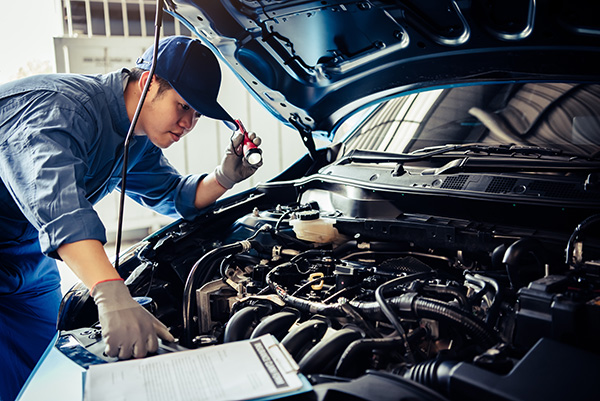
Time and money are two of the most valuable commodities in today's fast-paced world. When it comes to vehicle ownership, preventative maintenance offers a strategic approach to preserving both. It is not just a chore but a wise investment that can save you precious time and hard-earned money. Preventative Maintenance Preventative maintenance involves proactive measures to keep your vehicle in optimal condition rather than waiting for problems to arise. From routine oil changes and tire rotations to fluid checks and filter replacements, these preventive steps help identify and address potential issues before they escalate into costly repairs. Time-Saving Benefits Adhering to a preventative maintenance schedule can significantly reduce the likelihood of un ... read more
Posted on 3/21/2024
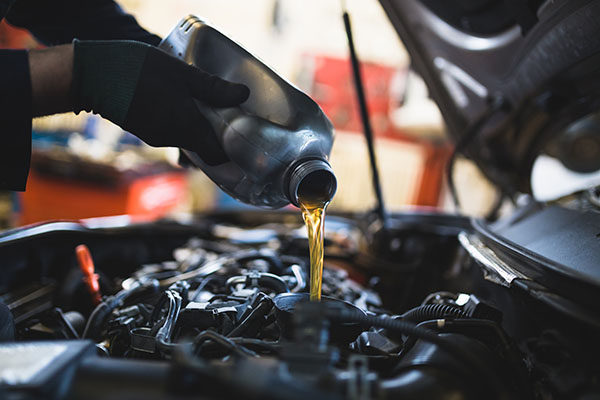
Regularly checking your engine oil is one of the most critical aspects of vehicle maintenance. Engine oil plays a vital role in lubricating engine components, reducing friction, and preventing overheating. Monitoring your engine oil levels ensures optimal engine performance, longevity, and reliability. If you’re confused on how often you should do it and the proper method for performing an oil check, continue reading! Engine oil serves multiple crucial functions in your vehicle's engine. It lubricates moving parts to reduce friction and wear, helps dissipate heat, prevents corrosion and rust formation, and maintains a seal between the pistons, rings, and cylinder walls. Over time, engine oil deteriorates due to heat, moisture, and contaminants, losing its effectiveness and viscosity. Regular oil checks allow you to monitor oil levels and quality, preventing potential engine ... read more
Posted on 2/28/2024
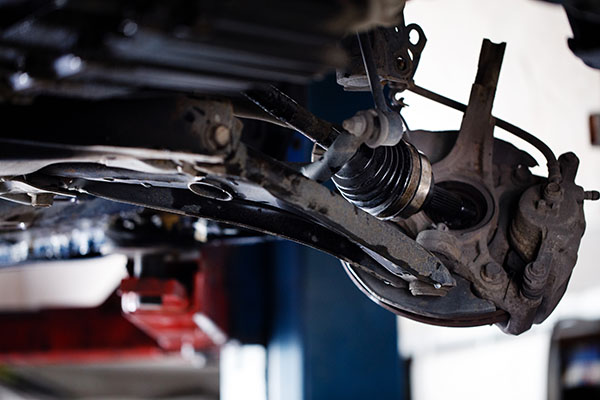
Every vehicle owner despises the dreaded engine issues that can leave them stranded on the side of the road or with hefty repair bills. While engines are complex systems with many components, one particular culprit tends to cause more trouble than others. Get ready to delve into the heart of your vehicle's troubles and learn how to address them head-on. The Spark Plug - Small Component With Big Problems At the heart of many engine issues lies a seemingly innocuous component: the spark plug. Despite its small size, the spark plug plays a crucial role in the combustion process, igniting the air-fuel mixture within the engine cylinders. When they fail or become faulty, they can wreak havoc on engine performance, leading to a range of issues from misfires and poor fuel efficiency to rough idling and difficulty starting the engine. Common Pr ... read more
Posted on 1/27/2024
.jpeg)
Routine car maintenance is essential for prolonging the lifespan of your vehicle and ensuring it operates safely and efficiently. Among the most critical services are the 30, 60, 90, and 120-mile services. These intervals represent key milestones in your vehicle’s life where various components need checking, replacing, or updating. 30K-Mile Service The 30-mile service is your car’s first major check-up. At this stage, the focus is on inspecting the vehicle’s fundamental systems, including the engine, transmission, brakes, and all fluids. It's a crucial time to identify any issues that may have arisen since you purchased the car. Key Services Include:Oil and filter change Fluid level checks and adjustments Tire pressure and tread che ... read more
Posted on 12/4/2023

As the leaves fall and the temperatures drop, it's a clear sign that winter is just around the corner. Before the snow blankets the roads and the cold bites, it's essential to prepare your vehicle for the challenges that winter can bring. Trust our team to help you transition your car from fall to winter, ensuring it remains reliable and safe during the chilly months ahead. Here’s everything you need to prepare for: 1. Winter Tires: Your Best Friends on Snowy Roads Winter tires are specifically designed to provide better traction on cold, icy, and snowy surfaces. Installing a set of winter tires can significantly improve your car's handling and safety during winter conditions. Ensure they are properly inflated and have sufficient tread depth to handle the slippery roads. 2. Battery Check: The Power to Start Cold weather can be ... read more
Posted on 11/28/2023
.jpeg)
Imagine yourself driving down a snow-covered road in the heart of winter, and suddenly, your car loses control, skidding dangerously close to the edge. Here is another scenario: scorching summer heat causes your tires to wear out prematurely, leaving you stranded on the side of the road. These dilemmas underscore the critical importance of changing tires before winter and summer, a practice that can make the difference between a safe and smooth journey and a potentially dangerous one. The Importance of Winter Tires As the temperature drops, snow and ice begin to blanket the roads, and the difference between summer and winter tires becomes strikingly evident. Winter tires are engineered with a different rubber compound designed to remain flexible in cold temperatures, ensuring a better grip on slippery surfaces. They also have deeper treads and additional siping to enhance traction. These ... read more
Posted on 10/27/2023
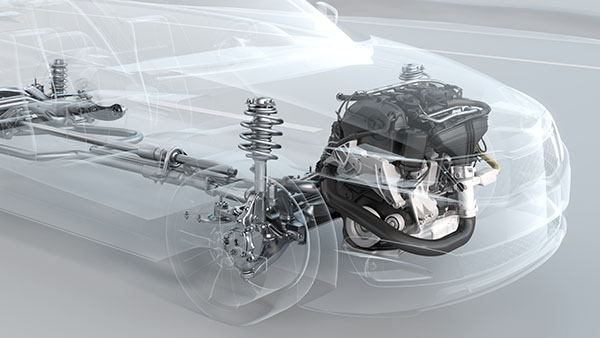
In the realm of automotive mysteries, there's a moment that can send shivers down any driver's spine—a moment when your trusty steed suddenly stumbles, coughs, and sputters, leaving you stranded on the roadside. What could be responsible for this abrupt breakdown, you wonder? The answer is - a timing belt or chain, an unassuming yet crucial component hidden beneath your car's hood. What Does A Timing Belt Do? The timing belt is the supervisor of a complex symphony, orchestrating the precise movement of your engine's components. Its role is to maintain a delicate balance between the pistons and valves, ensuring that they operate in perfect synchronization. This coordination is essential for allowing smooth combustion and performance. However, when the timing belt snaps or slips, the harmony is disrupted, and the engine's performance is severely impacted. The Catastrophic Consequences Engine Misalignment A snapped or loose ... read more
Posted on 9/29/2023

In today's fast-paced world, navigating through bustling city streets and congested traffic can be a nerve-wracking experience. However, there's a high-tech solution that's quickly becoming a must-have for every driver: car cameras. These little but powerful gadgets are changing the way we drive, providing a variety of benefits that not only improve safety but also bring peace of mind. 1. A Silent Witness on the Road Imagine this scenario: you're cruising along the highway when suddenly, a reckless driver swerves into your lane, causing a near collision. Without a car camera, it's your word against theirs in the event of a dispute. But with one, you have an unbiased witness that records every second of your journey. This video evidence can be invaluable when dealing with insurance claims and legal matters, helping you prove your innocence and protect your rights. -Keep in mind that some states don't accept vi ... read more
Posted on 8/30/2023
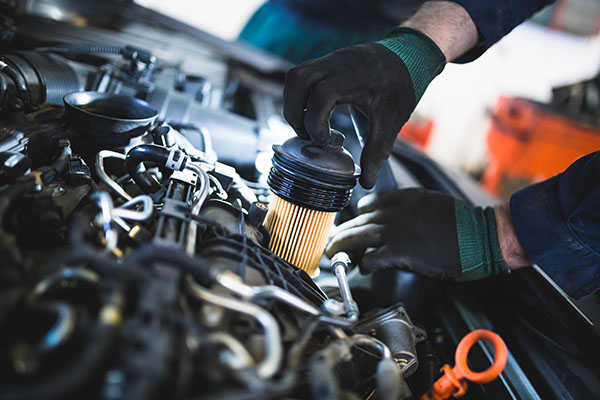
The concept of changing your vehicle's oil only once a year might sound appealing – fewer trips to the mechanic, less hassle, and potentially lower costs. However, when it comes to maintaining health and longevity, your engine doesn't think the same - let's see why. Before We Start: What Does Engine Oil Do? Engine oil serves as the lifeblood of your vehicle's engine, providing crucial lubrication to its moving parts, reducing friction, and dissipating heat. Over time, oil breaks down, becomes contaminated with debris, and loses its viscosity, compromising its ability to perform these vital functions. Regular oil changes are necessary to ensure that your engine continues to operate efficiently and reliably. Oil Degradation and Contamination Even if your vehicle spends most of its time parked, the oil inside the engine is still subject to degradation. Factors such as temperature fluctuations ... read more
Posted on 7/28/2023
.jpeg)
Chances are that you have most likely heard about 30k or 90k services, but what do they mean, actually? In this article, we will take a closer look at what they are and how they are different from each other - making both of them equally important. 30K Service The 30,000-mile service marks a critical milestone in your vehicle's maintenance schedule, typically occurring around the two-year mark for most drivers. This service interval focuses on inspecting and addressing key components that have been subjected to regular wear and may require attention. Here are some common procedures performed during the 30k service: Oil and Filter Change Regular oil changes are essential for maintaining engine health and lubrication. During the 30k service, the oil and filter are typically replaced to ensure optimal performance and longevity. Fluid Checks and Replacements ... read more